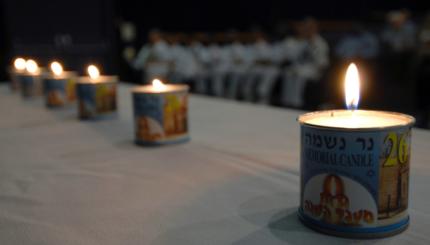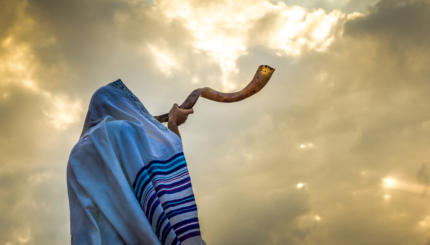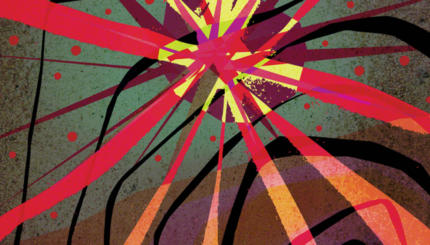When we talk about amazing Jewish music that came out of the first half of the last century, it’s a shame that the first two things which come to mind are the kitsch album Jewface and Irving Berlin’s White Christmas.
The first time I found out about Yossele Rosenblatt was when I started work at MJL. I was given the task of learning the entire database of articles, and so I first plunged into the music section, expecting it to be dry and historical. Instead, I found a wealth of articles about Cantor Yossele Rosenblatt.
For ages, all you could hear of Rosenblatt were some crinkly recordings that sounded like a vinyl record played with sandpaper. But, thanks to Aderet Music and producer Mendy Wyrdiger (the brother of Mordechai ben David, for those of you who know), the just-released CD Od Yosef Chai is crystal clear, note-perfect, and otherworldy inspiring.
In the New York Times, jazz great Ornette Coleman regales Cantor Rosenblatt:
“I was once in Chicago, about 20-some years ago? Mr. Coleman said. A young man said, I’d like you to come by so I can play something for you. I went down to his basement and he put on Josef Rosenblatt, and I started crying like a baby. The record he had was crying, singing and praying, all in the same breath. I said, wait a minute. You can’t find those notes. Those are not notes. They don’t exist?
Such was the power of Rosenblatt. Often compared to an earlier-days Matisyahu, Rosenblatt was offered starring roles in operas and the theater. Hollywood and Broadway agents tried to persuade him to perform on Shabbat. But he held fast to his beliefs.
Now, almost a century later, we can hear him again. And he sounds goood.
At first I was skeptical about the CD. First of all, CDs of old recordings are infamously bad quality. Not so, here: I don’t know what technique they used, but it sounds like he walked out of the studio last week. Second, CDs packaged in DVD cases are (a) a waste of packaging, and (b) don’t fit into normal CD racks. That, too, was allayed: the gorgeous booklet that accompanies it, with a biography of Rosenblatt and extensive notes on each of the songs, is way too nice to fit into a cramped 4-inch square.
The songs aren’t too shabby, either. “Hineni Heoni Mimaas,” the cantoral entreaty “Here I Stand Before You,” opens the album, and it’s a slow-building blast of pain, humility, and vocal dexterity. It manages to sound both humbling and powerful, which are not easy things to do at the same time. “Rachem Na,” a nearly nine-minute odyssey, is moody, tempered and tumultuous, just as it should be. The prayer asking for God’s compassion is an interplay of slow, sustained words taken slowly and savored, followed by fast, harsh lines that feel like sudden thunderclaps intertwine. So does Rosenblatt’s voice, which trades off lines with a violin, each one-upping the other in emotional churning.
About two-thirds of the way through, Rosenblatt’s voice suddenly explodes into a chorus. While before, it felt like a symphony, now it’s a full-blown classical painting — one of those huge, Renaissance canvases, with waves crashing everywhere and a man on his knees in the center, palms raised toward Heaven in supplication. At its conclusion, all the other instruments vanish and the song fades to a simple duet between Rosenblatt — his soul withered, his voice still vibrant — and the violin, similarly pained, similarly brilliant.


